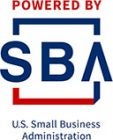At the heart of the Rhode Island Small Business Development Center is our one-to-one, confidential business counseling. From pre-launch, to problem solving, to expansion, we have four expert, full-time counselors and five part-time specialists around the state available to meet with you and help your business grow and thrive.
We value your time and want you to get as much out of your one-on-one appointment as possible. The best way to do that is for both of us to be prepared for our time together. A great first step after you’ve scheduled an appointment is to talk with us first. A quick phone check-in before we meet will give us a sense of what we’ll be working on, and what resources to have ready. We can also confirm what documents or materials you should bring to the appointment for us to review together.
Our full-time business counselors — Dennis McCarthy, Josh Daly, Manuel Batlle and Amit Basnet — shared more tips to prepare for your initial meeting. We divided them into tips for startups, established small businesses, and any clients looking to access additional financing.
Startups: How to Prep for Your First Meeting
Pre-launch? These particular preparation steps will help you get a jump start on our first meeting:
1. Bring your homework.
We love to see all the research and homework you’ve done to get to the point where you’re ready to meet with us. This helps us quickly assess your mindset and gauge the strength of your business premise. What do you know about your market, your customers, and your competition? If there are holes, we can quickly point you back to resources to strengthen or refine your proposition. If you’re solid, we’ll be ready to identify a series of steps forward.
2. Write a draft of your mission statement.
This formal summary of the goals and values of your company defines what the company will do for their customers, employees, and owners. Not sure where to start? Check out this primer for how to write a mission statement in 5 easy steps. At minimum, have a pitch ready in the form of a one-page executive summary of your business, and though it’s not necessary, if you have a draft of a business plan, bring it along.
3. Prepare and bring an updated resume.
This step will help us get a feel for where you’re starting out in your business and your industry background.
4. Prepare a list of start up expenses.
Having a firm grasp of start up expenses will help us quickly address the question of what is needed, financially, to get your business off the ground.
Established businesses: How to Prep for Your First Meeting
Looking to grow, or solve a problem? Make the most of your appointment by preparing in these ways:
1. Identify growth points.
Take some time to drill down into identifying hurdles to growth, where the problem or challenge lies. Is it marketing? Operations? Production? Where should we look first in order to trace a clear path to moving your small business a step forward? If you know that money or financing are your sticking point, see below for steps to prepare to address that area first.
2. Bring documentation.
Bring any paperwork, documentation, or information related to the issue you want to dig into. For example, if you’re having cash flow problems, come prepared with recent financial statements; if you want to improve your marketing, bring examples of your current materials and an up-to-date list of current marketing channels.
3. Assess your digital marketing presence.
Are you using digital media tools to target customers? Are you leveraging the power of social media, email marketing, and online media outlets? Have you dug into Google Analytics, AdWords, or Search Engine Optimization (SEO)?
Financing
For any clients exploring financing sources or applying for a loan, these steps are critical:
1. Documents
For clients applying for a loan, bring as many items from this checklist of required loan documents that apply to your situation. These pieces of business and personal financial documents, business background information, and legal paperwork are necessary for a completed application. By bringing them to your meeting with a business counselor, we can help you prepare to answer questions during your interview.
2. Review the 5 Cs.
Before you come in, take a minute to get a quick background in the 5 Cs of credit. These are the areas that any lender will look at when evaluating your creditworthiness. Knowing about the 5 Cs in advance will help us prepare you to shore up and defend your application.
3. Have a sense of your personal creditworthiness.
Your personal credit is likely to have a significant impact on your ability to access financing for your small business. Prior to meeting with a business counselor, it’s important to assess your strengths and weaknesses in this area and get a jump start on improving your personal credit in order to be eligible for the widest range of business financing options.
For any small business client coming to meet with us, check out the RISBDC blog, too. We’ve got a ton of helpful tips on relevant topics in small business financing, marketing, hiring, business planning, and more. Reading a post in advance may help you identify specific questions you’d like to answer in our time together.
No matter what stage you’re at in launching or expanding your business, we’re excited to partner with you. We usually find that what our clients get back is based on what they put into the relationship. If you work hard with us, we can do great things together. If you get a jump on coming in prepared, we can go farther, faster!
Contact us today to schedule an appointment.




